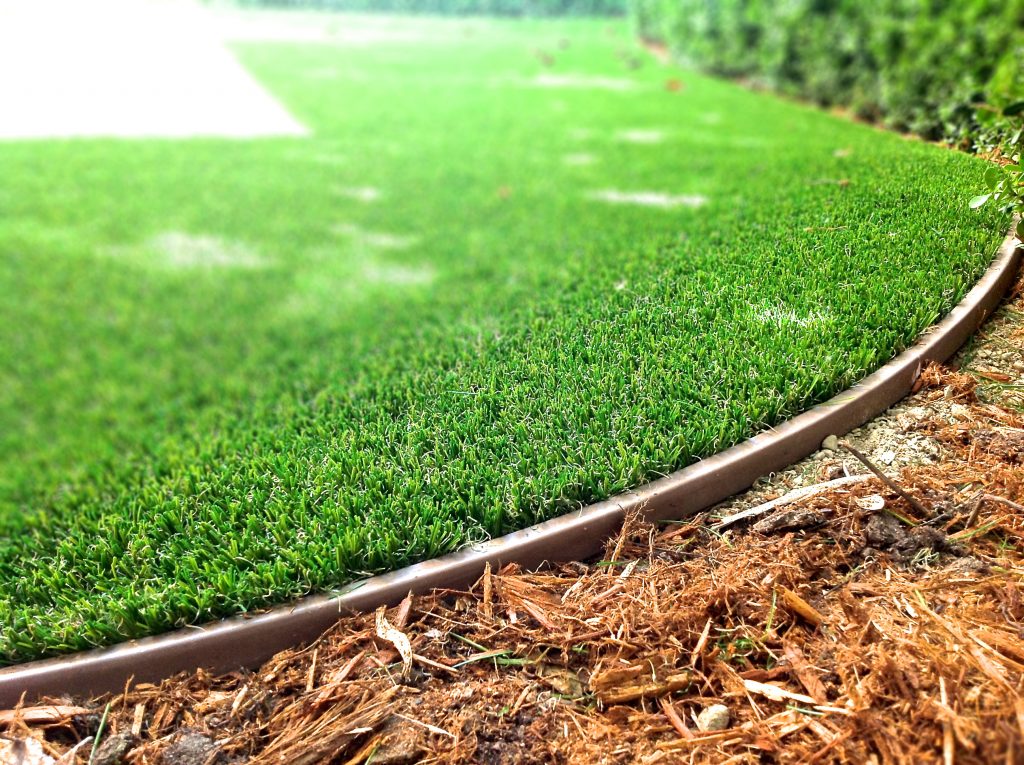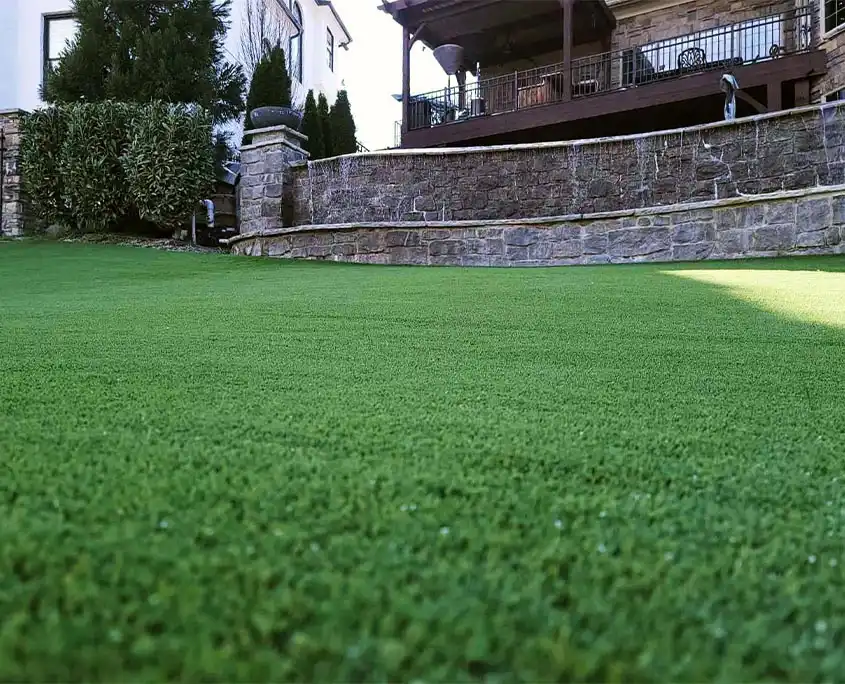Tailored Turf Installation Phoenix AZ for Homes, Businesses, and Play Areas
Tailored Turf Installation Phoenix AZ for Homes, Businesses, and Play Areas
Blog Article
Look Into the Environmental Perks of Opting for Synthetic Grass Solutions
The adoption of artificial lawn options provides a compelling possibility to attend to pressing environmental challenges. By substantially reducing water usage and reducing the application of unsafe chemicals, these choices not only promote sustainable landscape design yet additionally protect local environments. The reduced carbon footprint connected with decreased upkeep tasks adds to an extra lasting technique to land monitoring. The effects of these benefits expand past plain preservation initiatives, elevating concerns concerning their long-term impact on habitat preservation and total environmental equilibrium. Exploring these measurements reveals a complex interplay worth taking into consideration.
Water Conservation Perks
Among one of the most significant benefits of man-made grass is its ability to conserve water. Traditional turf yards require significant irrigation, especially in areas prone to dry spell or water limitations. In contrast, synthetic turf does not need watering, substantially reducing the total demand for water resources. This feature is specifically helpful in deserts where water deficiency is a pushing worry.
By eliminating the need for routine watering, artificial lawn contributes to sustainable landscape practices and aids reduce the ecological influence of excessive water consumption. Moreover, the preservation of water reaches the reduction of runoff, which can result in soil erosion and waterway air pollution.
Additionally, the setup of man-made turf allows property owners and towns to designate water sources much more effectively, concentrating on vital uses such as alcohol consumption water and agriculture. The change in the direction of synthetic grass not only promotes liable water use yet also lines up with wider environmental objectives aimed at protecting natural deposits.
As areas progressively prioritize sustainability, the water conservation benefits of fabricated turf provide an engaging instance for its fostering in domestic and commercial landscaping tasks.
Reduced Chemical Use
The transition to synthetic grass significantly decreases the reliance on chemical treatments generally used in all-natural lawn maintenance. Standard turf administration normally involves the application of herbicides, pesticides, and fertilizers to promote development and control bugs. These chemicals can posture threats to human wellness, neighborhood wild animals, and the environment, adding to dirt and water contamination.
On the other hand, synthetic grass removes the requirement for these unsafe substances. As soon as installed, it requires minimal maintenance, primarily being composed of regular cleaning and seldom infill replenishment. This decrease in chemical usage not only profits the prompt atmosphere yet likewise adds to wider eco-friendly stability. By reducing the launch of artificial substances right into the environment, artificial lawn advertises healthier soil and water systems.
Additionally, the absence of chemical overflow connected with synthetic grass setups assists safeguard neighborhood waterways from pollution, supporting aquatic life and keeping biodiversity. Arizona artificial turf. As areas significantly prioritize lasting practices, selecting synthetic grass presents a practical solution that aligns with environmental conservation objectives. Via this change, home proprietors can take pleasure in lush green spaces without jeopardizing ecological health, leading the way for a more sustainable future
Reduced Carbon Impact

In addition, the installation of synthetic grass can lead to significant water conservation. All-natural yards call for significant amounts of water for irrigation, which not just contributes to the carbon impact linked with water removal and treatment however additionally strains neighborhood water resources. In contrast, synthetic grass requires very little upkeep, calling read more for no watering, thus significantly decreasing water use and its linked energy prices.
Furthermore, the longevity of artificial lawn contributes to its reduced carbon impact. With a lifespan of up to 15 years or even more, the need for constant replacements is reduced, leading to less waste and reduced power intake in production and taking care of traditional yard choices. Generally, synthetic grass offers a sustainable option for eco conscious landscape design.
Habitat Preservation
Environment conservation is an essential consideration in the debate over landscape design selections, especially when contrasting artificial lawn to natural yard. All-natural yard lawns usually call for extensive maintenance, consisting of the usage of herbicides, pesticides, and fertilizers, which can adversely influence neighborhood ecosystems. These chemicals can seep right into the soil and rivers, harming indigenous flora and fauna and interfering with local environments.
Man-made lawn removes the demand for harmful chemicals, thus safeguarding nearby wildlife and keeping the integrity of surrounding environments. The setup of artificial grass can lead to the conversion of previous yard areas into even more biodiverse landscapes, such as pollinator yards or indigenous plant locations, which can support neighborhood wildlife.
Eventually, the transition to man-made turf not just conserves water and decreases upkeep initiatives but also cultivates a more harmonious connection between human activities and the natural surroundings, advertising habitat preservation at This Site the same time.
Long-Term Sustainability
Long-term sustainability is a critical consider assessing the benefits of synthetic grass over conventional turf yards. Among one of the most substantial benefits of man-made grass is its durability; it can last up to 15-20 years with minimal upkeep, whereas natural turf needs regular reseeding and substitute. This longevity minimizes the demand for consistent resources, such as water, plant foods, and chemicals, which are crucial for preserving a healthy and balanced grass yard.
Furthermore, synthetic turf adds to a reduction in carbon discharges connected with yard treatment tools. Standard yards often require gas-powered mowers, trimmers, and blowers, all of which add to air contamination. Artificial turf companies phoenix. In contrast, synthetic grass gets rid of the need for such tools, promoting a cleaner environment
Additionally, the manufacturing of artificial grass increasingly utilizes recycled products, enhancing its sustainability profile. As producers adopt eco-friendly techniques, the environmental footprint of man-made lawn remains to decrease.

Verdict
The adoption of synthetic lawn options presents significant environmental benefits, consisting of significant water preservation, decreased reliance on harmful chemicals, and a lower carbon impact. Man-made turf help in protecting all-natural habitats by minimizing land disturbance and advertising long-lasting sustainability through the use of resilient products. Collectively, these variables underscore the potential of synthetic grass to add positively to ecological health and wellness and offer see page a feasible choice to traditional landscaping methods in an increasingly resource-conscious globe.
In contrast, fabricated grass does not require watering, considerably reducing the overall demand for water sources. By reducing the launch of synthetic compounds right into the environment, man-made lawn advertises healthier dirt and water systems.
Moreover, the setup of man-made turf can result in considerable water conservation. In comparison, man-made grass requires marginal upkeep, requiring no watering, therefore significantly minimizing water use and its connected energy prices.

Report this page